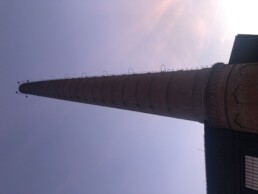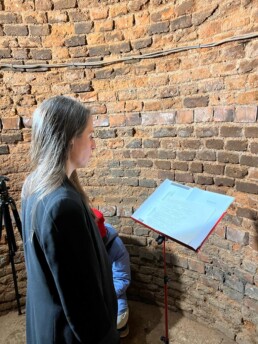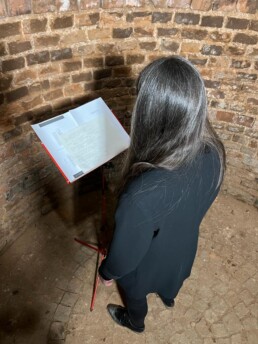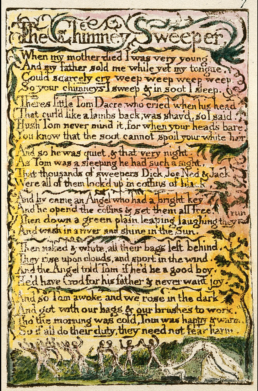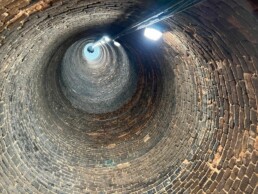Reading William Blake
Chimneys have been part of humankind’s history since the ancient times, testifying to its civilisational and technological advancement throughout the centuries. With the advent of the Industrial Revolution in the late 18th century, cityscapes became marked by an abundance of factory chimneys, heralding a new era of fast-paced development that changed the world forever. All its achievements notwithstanding, industrialisation came at a significant cost, putting an increasing ecological burden on the planet and exploiting entire segments of societies.
A symbol of these social costs is the child chimney sweeper figure, whose plight was poignantly described by William Blake in his poem The Chimney Sweeper from 1789, powerfully conveying the harsh and deadly reality of child labour and economic exploitation unleashed by industrialisation. Today, in an era of advancing climate disaster and rampant global wealth disparities, the factory chimney remains a no less powerful symbol of the world’s development as well as the environmental damage and inequalities it generates.
Katarzyna Krakowiak-Bałka’s work comments on this aggravating global condition by bringing Blake’s child chimney sweeper figure into the current context. Set in a post-industrial space, her performative piece relies on a transcript of Blake’s work in Czech, whose fragment reads:
FF DÁ FF EÉ ÉÉ É ČA ČŽ ČÍ ČŽ ÉÉ ÉĚ ÉĚ ÉĚ ÉĚ ĚC
ĚC ÉÉ FF FE ÉE ČA ÉA ČF ŽĚ ŽA ŽŘ ŽŠ ÝČ ĚÉ
ČÍ ČČ ŠA ĚÉ ĚÉ ĚÉ ŘÉ ŘŘ ČĚ ČC ČÍ ČŠ
ĚĚ ĚD DĚ FĚ, ŘŘ ŽE ŽÍ ÝŽ ŽŘ ÝĚ ÝŠ ŽÍ ÝČ ÝÍ ĚÉ ŽF
ŽŽ ĚO ČE ŽF ÝĚ ÝČ ŽÁ ĚO ČŠ Ž ÝĚ ŽF ŽC ŽÍ ŽE ŽE
This source material is processed by an invited singer in the form of a vocal performance delivered right into the chimney, with the sounds released through it into the sky like smoke in the old days. This performative “reading” of Blake’s poem powerfully ties the current Anthropocene reality with its 18th century onset, thus seeking a symbolic redress of wrongs suffered by the planet and its exploited children. Redemption is sought as the music of the verses flows through the shaft, washing away the impure memory and energy deposited inside throughout the years. The performance laments those lost to exploitative industrialisation while offering hope for a cleaner future of social justice and environmental sustainability.
